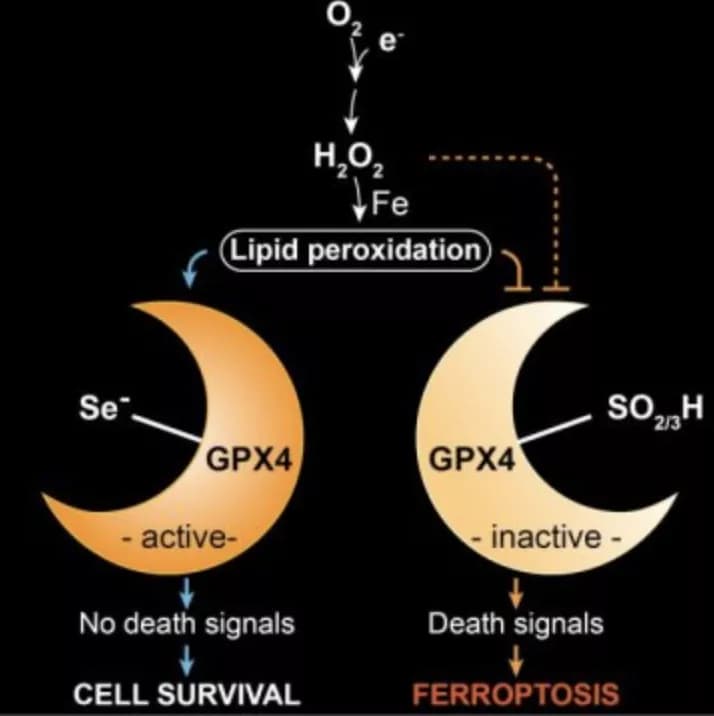
Selenium Protects A Specific Type Of Interneurons In The Brain
Exactly 200 years ago, the Swedish scientist Jöns Jacob Berzelius discovered the trace element selenium, which he named after the goddess of the moon, Selene. Besides its industrial applications (chemical industry, production of semiconductors and toners), selenium is an essential trace element and indispensable for humans, many animals and some bacteria. A team led by Dr. Marcus Conrad, research group leader at the Institute of Developmental Genetics (IDG) at Helmholtz Zentrum München, showed for the first time why selenium is a limiting factor for mammals.
Scientific 'by-catch' solves decades-old mystery
The scientists have been investigating for years the processes of a novel type of cell death, known as ferroptosis. In this context, the enzyme GPX4, which normally contains selenium in the form of the amino acid selenocysteine, plays an important role.
In order to better understand the role of GPX4 in this death process, we established and studied mouse models in which the enzyme was modified," said study leader Conrad. "In one of these models, we observed that mice with a replacement of selenium to sulfur in GPX4 did not survive for longer than three weeks due to neurological complications."
In their search for the underlying reasons, the researchers identified a distinct subpopulation of specialized neurons in the brain, which were absent when selenium-containing GPX4 was lacking. "In further studies, we were able to show that these neurons were lost during postnatal development, when sulfur- instead of selenium-containing GPX4 was present," stated first author of the study, Irina Ingold.
Furthermore, the scientists were able to show that ferroptosis is triggered by oxidative stress, which is known to occur for instance during high metabolic activity of cells and high neuronal activity. "Our study demonstrates for the first time that selenium is an essential factor for the postnatal development of a specific type of interneurons," said Dr. José Pedro Friedmann Angeli, a scientist at the IDG, describing the results. "Selenium-containing GPX4 protects these specialized neurons from oxidative stress and from ferroptotic cell death."
Thus, the study explains why certain selenoenzymes are essential in some organisms, including mammals, whereas they are dispensable in other organisms, such as fungi and higher plants. In future investigations, study leader Marcus Conrad and his team aim to investigate how ferroptosis is triggered in cells. As a long-term goal, he wants to elucidate the role of ferroptosis in various disease conditions in order to be able to alleviate diseases, such as cancer or neurodegeneration, which are currently difficult to tackle.
Related Articles
Test Your Knowledge
Asked by users
Related Centers
Related Specialties
Related Physicians
Related Procedures
Related Resources
Join DoveHubs
and connect with fellow professionals

0 Comments
Please log in to post a comment.